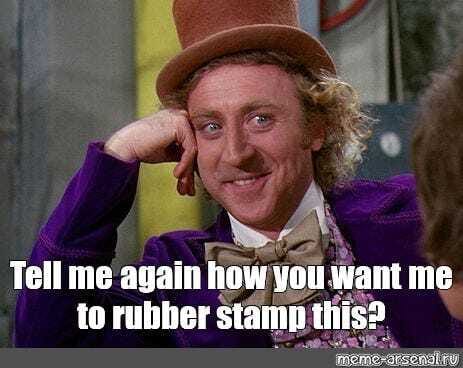Mostly metrics


Mostly metrics is proudly powered by Brex - the platform built for high performance finance teams.
Quick Pulse Check….
Based on your priorities in Q3, are you planning to swap out any tools this quarter?
Feature Story
WHAT DOES AN AUDIT CHAIR ACTUALLY DO?

A picture of some chairs.
Amy Butte has sat on more audit committees than most of us have had finance jobs. She’s been the Audit Chair at DigitalOcean, BNP Paribas, Fidelity, and Navan… where she eventually became the CFO.
When I had her on the Run the Numbers podcast, I asked a question I’ve always been too embarrassed to say out loud:
What does an Audit Chair actually do?
Like, is there a secret version of the financials only they see? Are they just a glorified approver of the 10-K? Or do they know where all the accounting bodies are buried?
Amy had answers. Some serious. Some funny. All insightful.
The Role Nobody Wants… But Every Company Needs
“Usually, the audit chair has the role that nobody else on the board wants to have.”
(Joking… kinda)
Not exactly the most glamorous job description, but also not wrong.
The Audit Chair is the person who works with the CFO, the auditors, and the finance team to pressure-test the numbers. They’re the one who walks into the boardroom and says:
“Hand on heart, these are good numbers.”
That means understanding the processes and controls behind the numbers, not just rubber-stamping them.

And it goes deeper than the P&L. Amy made the case that a good Audit Chair brings the entire financial story into the conversation:
“Strategy can’t just be ‘we’re going to grow.’ It has to be: what does that mean for gross margin, for free cash flow, for goodwill and liabilities?”
Translator-in-Chief
If you’ve ever seen a board member squint at a cash flow statement like it’s written in hieroglyphics, this is where the Audit Chair earns their keep.
“You have to take what you find, whether it’s on the balance sheet, cash flow, or MD&A, and make it relevant. What does this mean for our debt strategy? For our ability to acquire? For how quickly we need to fundraise?”
They translate financial realities into business implications.
A liability going current? That’s not just a footnote; it’s a flashing yellow light on strategy execution.
The CFO’s Secret Weapon
Amy made a strong case for the Audit Chair being a true partner to the CFO, not just a compliance overseer.
“I’d tell my CFOs, ‘If you need me to be the heavy, just let me know.’”
Need someone to close out that internal audit list? Call the Audit Chair.
Need help pushing for a better system or tighter controls? Call the Audit Chair.
Need a mentor who’s been around the block? Definitely call the Audit Chair.
“They can be a coach, a translator, a sounding board. I’ve had those people. I try to be that person now.”
How Do You Even Become an Audit Chair?
Spoiler: It’s not because you went to Audit Chair Camp.

Sidenote: Just watched Parent Trap with my kid for the first time. It hits different once you become a parent. Like, great movie, but terrible parenting and questionable negotiating strategies. The quite literally split the baby.
Amy’s path came from doing good work, building trust, and being in the right rooms over time.
“Most of the time, it wasn’t a recruiter. It was someone I worked with 10 years ago calling and saying, ‘Hey, we need someone sharp on the board. You’d be great.’”
She helped found Extraordinary Women on Boards, which shares real board opportunities, but she stressed that it’s still all about reputation and relationships.
Operator vs. Director: Know the Difference
Amy ended with one of the sharpest mental models I’ve heard:
“As an operator, your job is to run the business. As a director, your job is to ask the questions that help the business run better.”
She’s not trying to micromanage. She’s trying to ask one smart question per meeting; the kind that makes everyone pause and say, “Oh. I hadn’t thought of it that way.”
And that, in a nutshell, is what makes a great Audit Chair.
TL;DR: What Makes a Great Audit Chair
They verify the numbers, but more importantly, they make sure everyone understands them.
They go beyond the P&L, bringing attention to the balance sheet, cash flow, and MD&A.
They’re a translator, mentor, and sometimes the CFO’s bad cop.
They don’t manage the business, but they ask the questions that help it run better.
And most of all, they make the financials speak business.
Looking for Leverage Newsletter
IF YOU WANT TO TRICK YOUR INVESTORS, TELL THEM ABOUT YOUR “CARR”

“So if you take the exit year’s value for all my multi year deals, and ignore any first year discounting, I’m really like a $100 million dollar business.”
Today we’re talking about using non-standard definitions of ARR, and how it can lead to unexpected mark downs by investors during financing events. If you sell multi year deals, this post is for you.
Run the Numbers Podcast
A convo with Daniel Lentz, CFO of BIG COMMERCE
How do you build a sales culture where top performers are empowered and poor performers are not protected? In this episode, I’m joined by Daniel Lentz, whose career has spanned sales, taking an e-commerce platform public during a global pandemic, and, interestingly, seminary.
Daniel Lentz is the CFO of BigCommerce and an expert in designing comp plans that work. In this episode, he breaks down
His approach to designing comp plans, and how to avoid the pitfalls that can easily discourage your salespeople.
How to align sales and marketing efforts, touching on multi-touch attribution models, before discussing why he focuses on input metrics over output metrics.
The importance of having an operator-first mindset
The skill of having a BS detector
The challenges of navigating macroeconomic factors
The role of mentorship, and
Why teaching your team how the company actually makes money is the ultimate unlock.
Quote I’ve Been Pondering
On effort… and chairs…
“...the frustrating act of assembling your own furniture causes you to fall in love with the final product.”
Wishing you swift CAC Payback,
CJ
